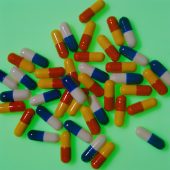
TUESDAY, April 21, 2015 (HealthDay News) — In a small, preliminary study, high-dose insulin capsules safely induced what appears to be a protective immune response in children at high risk of developing type 1 diabetes.
If these findings hold true in larger studies done over longer periods of time, the treatment may prevent the development of type 1 diabetes in high-risk kids, much like allergy shots can prime the immune system not to react to harmless allergens, researchers say.
“We have introduced a relatively new paradigm, which is to actively expose the body to one of its own proteins before the body has a chance to see it as foreign and to eliminate it like a virus, something which happens in children who develop type 1 diabetes,” said the study’s lead author, Ezio Bonifacio, deputy director at the DFG Center for Regenerative Therapies Dresden in Germany.
The study findings are published in the April 21 issue of the Journal of the American Medical Association.
Type 1 diabetes is an autoimmune disease that develops when the body’s immune system mistakenly attacks the insulin-producing beta cells in the pancreas. This leaves children and adults unable to make enough — or any — insulin, a hormone needed to convert food into fuel for the cells in the body and brain, according to background research in the study.
Without replacement insulin — now given through injections or an insulin pump — people with type 1 diabetes would die.
Balancing the proper dose of insulin is difficult because a person’s needs change daily, even from hour to hour. The difficulty in managing type 1 diabetes is a main reason for wanting to prevent the disease, Bonifacio said.
Previous animal studies have hinted that oral insulin can help prevent type 1 diabetes, the study authors pointed out.
For the new study, the researchers recruited 25 children aged 2 to 7 years. All had a strong family history of type 1 diabetes and were considered genetically at risk for its development.
However, the children didn’t yet show any damaging immune system activity. That means they didn’t yet have destructive antibodies to insulin.
Fifteen children were given daily insulin capsules at varying doses for 3 to 18 months, according to the study. Ten children received inactive placebo capsules.
Nearly all — 83 percent — who received the highest-dose insulin capsule showed a protective immune system response. Some kids on lower doses also showed a response, but this occurred in one-third or fewer of the children in those groups, the researchers found.
It’s hoped that those who have a response to the insulin capsules will create protective immune-regulating cells that recognize insulin and understand it is not a threat that needs to be attacked, Bonifacio said.
He explained that this is a similar premise to the one behind allergy desensitization therapies.
Bonifacio added that the therapy appeared safe, causing no allergic reactions or lower blood sugar levels. “But the treatment needs to be tested for much longer and in many more children before we can truly say it is safe,” he said.
Many questions remain. It’s not clear how long the therapy would need to be given to induce a protective immune response. And, would the protective response be robust enough to overcome the aggressive response seen in the development of type 1 diabetes?
There’s also some concern that giving oral insulin proactively might induce the very process it’s supposed to prevent, though Julia Greenstein, vice president of discovery research at JDRF (formerly the Juvenile Diabetes Research Foundation), said there was no indication of that happening in this early study. JDRF provided a grant that partially funded this research.
Dr. Jay Skyler, deputy director of the Diabetes Research Institute and author of an accompanying journal editorial, said the researchers demonstrated signs of “a protective immune response that could counterbalance the ongoing destructive immune response” that triggers type 1 diabetes.
But, he added, “science progresses slowly — don’t look for immediate results.”
More information
Learn why it’s important to find ways to prevent type 1 diabetes from JDRF.
Copyright © 2026 HealthDay. All rights reserved.

